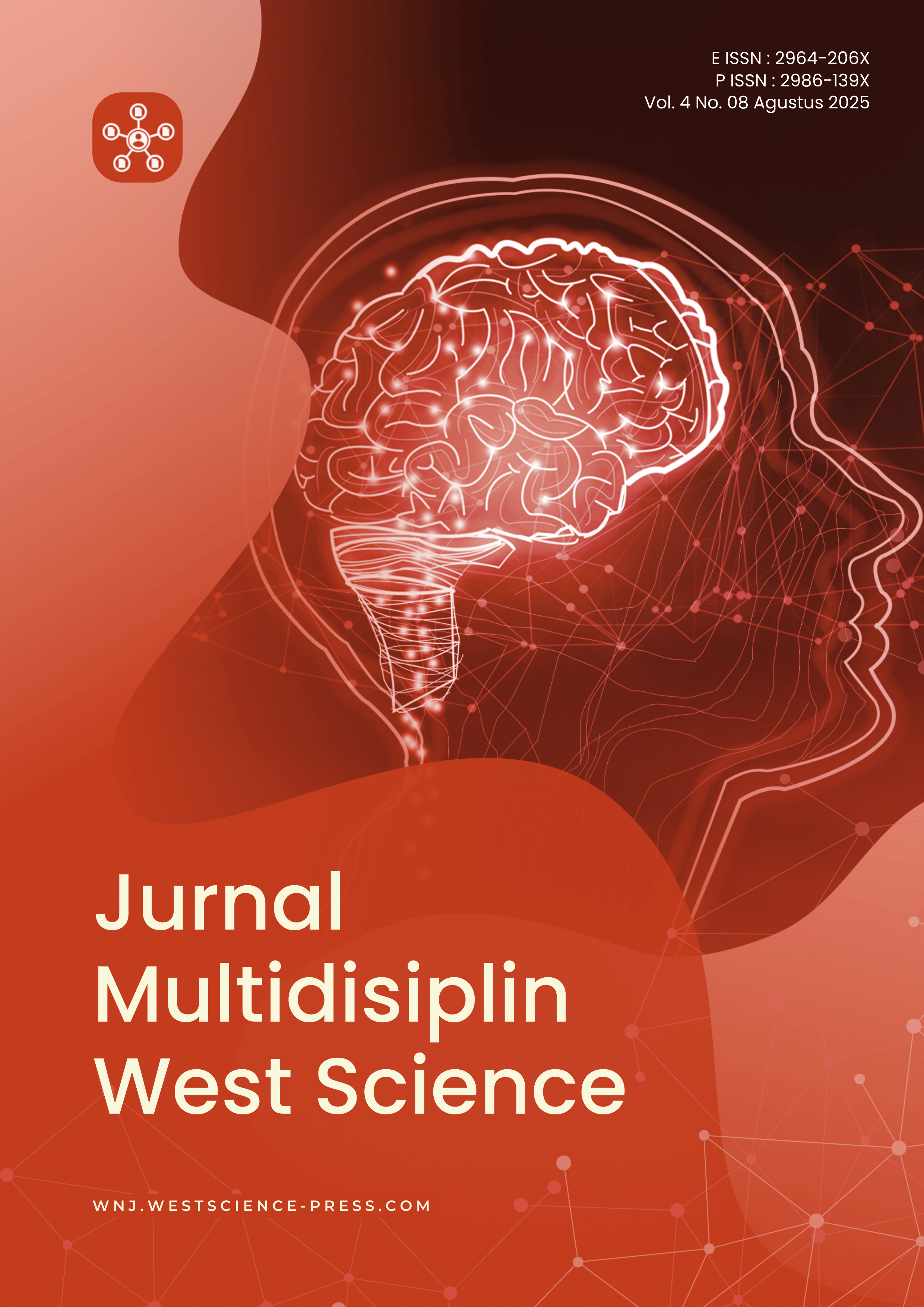Pengaruh Self Efficacy dan Locus of Control terhadap Kemampuan Penyelesaian Konflik Karyawan di The LUUR
DOI:
https://doi.org/10.58812/jmws.v4i08.2602Kata Kunci:
Self-Efficacy, Locus of Control, Penyelesaian Konflik, Karyawan, LUURAbstrak
Penelitian ini bertujuan untuk menganalisis pengaruh self efficacy dan locus of control terhadap kemampuan penyelesaian konflik karyawan di The LUUR. Responden penelitian berjumlah 125 orang dengan metode pengumpulan data berupa angket, wawancara dan studi dokumentasi. Hasil penelitian menunjukkan bahwa mayoritas responden adalah laki-laki (54.40 %), dan sebanyak 55,20 % responden pernah mengalami konflik kerja. Analisis regresi membuktikan bahwa self efficacy tidak berpengaruh signifikan terhadap kemampuan resolusi konflik, sedang kan locus of control berpengaruh positif dan signifikan terhadap penyelesaian konflik.
Referensi
Chen, L., & Huang, J. (2021). The influence of tenure on employees’ locus of control and job performance in the hospitality industry. Journal of Hospitality and Tourism Management, 48(2), 102–110. https://doi.org/10.1016/j.jhtm.2021.05.004
Chen, Y., Zhou, X., & Zhu, J. (2020). The impact of self-efficacy on employee conflict management: Evidence from the service sector. International Journal of Conflict Management, 31(4), 457–473. https://doi.org/10.1108/IJCMA-01-2020-0012
De Clercq, D., Haq, I. U., & Azeem, M. U. (2021). Self-efficacy and work engagement: Understanding the role of age differences. European Journal of Work and Organizational Psychology, 30(3), 327–339. https://doi.org/10.1080/1359432X.2020.1825379
Ghosh, R., & Rai, A. (2020). Age, locus of control, and conflict management in service organizations. Journal of Organizational Behavior, 41(2), 123–138. https://doi.org/10.1002/job.2435
Irdhayanti, I., Putra, A., & Rahmawati, D. (2024). Departmental characteristics, motivation, and employee performance in Indonesian hospitality sector. Journal of Tourism and Hospitality Research, 44(1), 55–72. https://doi.org/10.1177/14673584231234567
Jurišić Mustapić, M., & Marušić, S. (2023). Workload, stress, and productivity in hotel departments: Evidence from the Croatian hospitality industry. Tourism and Hospitality Management, 29(1), 1–18. https://doi.org/10.20867/thm.29.1.1
Kim, M., & Beehr, T. A. (2019). Self-efficacy and internal locus of control as moderators of workplace conflict and stress outcomes. Journal of Organizational Psychology, 19(2), 23–35. https://doi.org/10.33423/jop.v19i2.1234
Li, X., Wang, Z., & Zhang, Y. (2022). Workplace conflict experience and its impact on employees’ problem-solving ability. International Journal of Human Resource Studies, 12(2), 145–163. https://doi.org/10.5296/ijhrs.v12i2.19654
Liu, W., Xu, X., & Li, J. (2021). Self-efficacy and locus of control as psychological resources in managing workplace conflict. Frontiers in Psychology, 12, 617–626. https://doi.org/10.3389/fpsyg.2021.617626
Nguyen, H., Pham, L., & Tran, T. (2022). Work experience, self-efficacy, and conflict resolution: Evidence from the hospitality industry in Vietnam. Asia-Pacific Journal of Business Administration, 14(3), 321–337. https://doi.org/10.1108/APJBA-06-2021-0209
Sukardi. (2021). Metodologi penelitian pendidikan: Kompetensi dan praktik. Jakarta: Bumi Aksara.
Zhang, J., & Liu, Y. (2021). Coping strategies and workplace conflict: The role of conflict experience. Journal of Applied Psychology, 106(5), 812–823. https://doi.org/10.1037/apl0000912
Unduhan
Dimensions
Diterbitkan
Terbitan
Bagian
Lisensi
Hak Cipta (c) 2025 Ni Nengah Juniasti Rusmandani, Irene Hanna Sihombing, Ni Desak Made Santi Diwyarthi

Artikel ini berlisensiCreative Commons Attribution-ShareAlike 4.0 International License.






















 Instagram
Instagram 